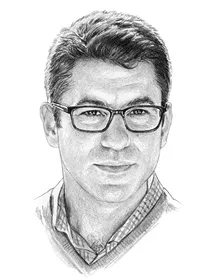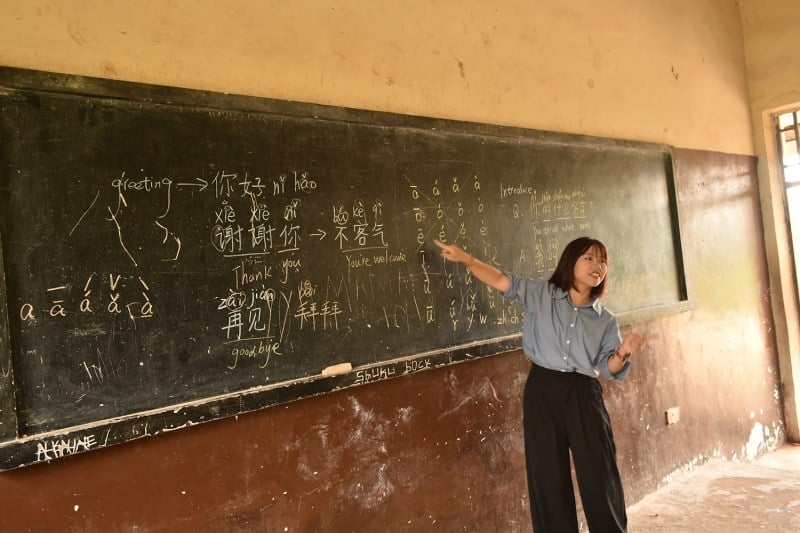America’s Universities Could End up Zombies

America’s Universities Could End up Zombies
U.S. higher education is the envy of the world—but, with state interference, maybe not for long.
Students at South Bank University graduate on October 13, 2015 in London. Dan Kitwood/Getty Images
Egypt’s two flagship universities, Cairo University and the American University in Cairo, are ranked 350th and 410th globally. According to the QS World University Rankings, there are at least 1,200 schools around the world that are better than Damascus University. In Turkey, Middle East Technical University comes in at 285th, Bogazici University—which was founded by Americans and modeled after the small liberal arts colleges found in the United States—is 418th, and the training ground for Turkey’s civil service, Ankara University, is ranked lower than 800th.
There are multiple reasons for these poor rankings, but one common factor runs through them: government interference. When the security services are monitoring the quad and faculty offices, academic freedom is compromised, which directly affects the quality of research (if any research is being conducted at all). There is a problem with credentialing at some of these schools. Melih Bulu, whom Turkish President Recep Tayyip Erdogan appointed rector of Bogazici in 2021, confronted several credible allegations of plagiarism during his seven-month tenure leading the school. It is not unheard of in Egypt for elites to pay to have dissertations written for them.
Egypt’s two flagship universities, Cairo University and the American University in Cairo, are ranked 350th and 410th globally. According to the QS World University Rankings, there are at least 1,200 schools around the world that are better than Damascus University. In Turkey, Middle East Technical University comes in at 285th, Bogazici University—which was founded by Americans and modeled after the small liberal arts colleges found in the United States—is 418th, and the training ground for Turkey’s civil service, Ankara University, is ranked lower than 800th.
There are multiple reasons for these poor rankings, but one common factor runs through them: government interference. When the security services are monitoring the quad and faculty offices, academic freedom is compromised, which directly affects the quality of research (if any research is being conducted at all). There is a problem with credentialing at some of these schools. Melih Bulu, whom Turkish President Recep Tayyip Erdogan appointed rector of Bogazici in 2021, confronted several credible allegations of plagiarism during his seven-month tenure leading the school. It is not unheard of in Egypt for elites to pay to have dissertations written for them.
Of course, this kind of malfeasance is not confined to the universities of the Middle East, but Bulu in Turkey, like the people paying for the prestige of advanced degrees in Egypt, and others like them across the region, are the symptoms of broken systems of higher education—a state of affairs to which governments have contributed. There are many talented students and faculty in Egypt, Syria, and Turkey, but state interference has made it impossible for universities to fulfill their mission.
This sorry condition of major universities in the Middle East should be a warning to everyone who cares about higher education in the United States, American competitiveness, and U.S. soft power. There is no other country whose universities can keep up with the pace-setting, world-class nature of those in the United States, whose faculties and students can (until recently) pursue knowledge without fear of state interference.
The quality of American higher education built and nurtured on the principles of free inquiry is the reason why people all over the world want to send their kids to college in America. Three of Erdogan’s children went to Indiana University. In Jeddah, it is hard to find a member of the Saudi business elite who has not attended UCLA or USC, and there are a noticeable number of Harvard, Yale, and Tufts graduates in Riyadh. When I was studying for my doctorate at Penn, there was an army of Turkish and East Asian students in attendance.
Columbia, Penn, Harvard, and other American schools that are in the crosshairs of the Trump administration have a long way to go before they resemble their counterparts in the Middle East. They are at risk, though. The White House’s determination to punish these universities for both real and perceived transgressions puts the world-changing work that is being done at these schools in jeopardy. Students and professors will flee when resources are rescinded or never appropriated, and fear will force political conformity on cacophonous campuses that by their very nature encourage creativity, experimentation, and discovery.
All that said, any objective observation of what has gone down on campuses over the last 18 months makes clear that American universities have a range of problems, many of which are their own making. The stories of timorous leadership, rank antisemitism, left-wing dogmatism, and political activism masquerading as research are well-known by now. It seems that a large number of graduates are credentialed but are neither well-educated nor curious about the world—steeped as they are in the moral absolutism of contemporary pedagogy.
These are real problems, but, of course, the news stories and commentary about campus excess purposefully overlook how universities are critical to the development and understanding of artificial intelligence, discovering cures for various forms of cancer, developing a vaccine for AIDS, advancing quantum computing, understanding de-democratization, and gaining insight into ancient civilizations, to name a few random and notable examples. In its zeal to punish universities and establish control over them, Team Trump—which is chock-full of Harvard, Yale, Princeton, and other elite school grads—is risking current and future achievements, inventions, and innovations.
Hardly anyone would dispute that certain departments and certain schools are hotbeds of radicalism whose faculty and students demonstrate a yen for extremism so long as it is cloaked in the de-colonization paradigm. One of the privileges of tenure is the right to say stupid things without fear of political retaliation, though it seems the most outspoken professors believe (erroneously) that tenure and academic freedom insulate them from criticism outside the rarefied turf of academia.
Still, the overindulgences of some faculty is not a good reason to rescind hundreds of millions of dollars in research grants. That hurts everyone, and contrary to President Donald Trump’s worldview, it will not make the United States stronger. Indeed, one of the best ways to help the Chinese Communist Party is to hamstring American universities and colleges.
There is no doubt that U.S. universities had become damaged even before Trump’s interference. For those who do not work or study at them, it is hard to fathom how widespread intolerance and illiberalism are at schools that so ostentatiously promote their commitments to the opposite. But state punishment will further impair American higher education, just in different ways. Columbia is not in danger of becoming Ain Shams University (ranked 592nd in the world), but policing it in the way the Trump administration has will perhaps render it more politically pliant and palatable—yet also less creative and less conducive to discovery. That is closer to the zombie universities of the Middle East than anyone, including the president’s supporters, should want.
Steven A. Cook is a columnist at Foreign Policy and the Eni Enrico Mattei senior fellow for Middle East and Africa studies at the Council on Foreign Relations. His latest book is The End of Ambition: America’s Past, Present, and Future in the Middle East. X: @stevenacook
More from Foreign Policy
-

American flags are draped around tables and pipes in a small factory room as women work at sewing machines to produce them. Tariffs Can Actually Work—if Only Trump Understood How
Smart trade policy could help restore jobs, but the president’s carpet-bomb approach portends disaster.
-

Donald Trump looks up as he sits beside China’s President Xi Jinping during a tour of the Forbidden City in Beijing on Nov. 8, 2017. Asia Is Getting Dangerously Unbalanced
The Trump administration continues to create headlines, but the real story may be elsewhere.
-

Trump announces tariffs Trump’s Wanton Tariffs Will Shatter the World Economy
Economic warfare is also a test for U.S. democracy.
-

The Department of Education building in Washington, DC on March 24. Why Republicans Hate the Education Department
Broad popular support means that even Ronald Reagan failed at dismantling the agency.








Join the Conversation
Commenting on this and other recent articles is just one benefit of a Foreign Policy subscription.
Already a subscriber?
.
Subscribe
Subscribe
View Comments
Join the Conversation
Join the conversation on this and other recent Foreign Policy articles when you subscribe now.
Subscribe
Subscribe
Not your account?
View Comments
Join the Conversation
Please follow our comment guidelines, stay on topic, and be civil, courteous, and respectful of others’ beliefs.
Change your username |
Log out
Change your username:
CANCEL
Confirm your username to get started.
The default username below has been generated using the first name and last initial on your FP subscriber account. Usernames may be updated at any time and must not contain inappropriate or offensive language.